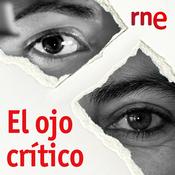275 episodios
- Of course, education has a point - but establishing exactly what that point is, can be a surprisingly difficult task. Do we educate children in order to foster autonomy and independent thinking, or to teach respect for certain norms, values and hierarchies? Is education about creative thinking and developing curiosity about the world, or is it about getting ready for the job market? Plenty of tension to explore this week, in a panel discussion on the aims of education.
- Living and writing through the years before, during and after the Second World War, French author and philosopher Albert Camus witnessed the rise of fascism and its terrible endgame in German National Socialism. Today, amid fears of a neo-fascist resurgence in the USA, his work well is worth revisiting.
- For decades, primatologists believed that primate societies were structured around aggressive alpha males - until a remarkable push from feminist scientists in the 1960s and 70s changed the narrative. So why does the "dominant alpha male" story persist in human culture?
- We tend to think of time as a universal experience, something that carries us all along in the same direction at the same pace. So it might seem strange to think of time in terms of 'temporalities', different concepts and experiences of time that reflect different cultural values. In Australia, Indigenous temporalities are deeply interwoven with notions of justice, sovereignty and care for country - but these temporalities exist in tension with settler-colonial notions of time.
- Buddhism in the West is often thought of as an ethical or philosophical system first and foremost, based on principles of non-self and impermanence, and universalist in its outlook. So it can come as a surprise to find that in countries like Sri Lanka, there exists a strain of Buddhist nationalism that has fierce pride, religious chauvinism and even violence in its history.
Más podcasts de Cultura y sociedad
Podcasts a la moda de Cultura y sociedad
Acerca de Philosopher's Zone
The simplest questions often have the most complex answers. The Philosopher's Zone is your guide through the strange thickets of logic, metaphysics and ethics.
Sitio web del podcastEscucha Philosopher's Zone, LO QUE TÚ DIGAS con Alex Fidalgo y muchos más podcasts de todo el mundo con la aplicación de radio.es

Descarga la app gratuita: radio.es
- Añadir radios y podcasts a favoritos
- Transmisión por Wi-Fi y Bluetooth
- Carplay & Android Auto compatible
- Muchas otras funciones de la app
Descarga la app gratuita: radio.es
- Añadir radios y podcasts a favoritos
- Transmisión por Wi-Fi y Bluetooth
- Carplay & Android Auto compatible
- Muchas otras funciones de la app


Philosopher's Zone
Escanea el código,
Descarga la app,
Escucha.
Descarga la app,
Escucha.







































